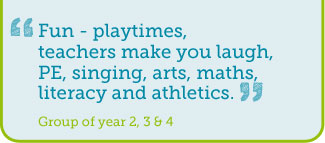Intent
At Westwood Academy, we believe that it is vital for all our pupils to learn from and about religion, so that they can understand the world around them. Through Religion and Worldviews, pupils develop their knowledge of the world faiths, and their understanding and awareness of the beliefs of others. This also contributes to their developing knowledge, understanding, skills and attitudes, which are necessary for their self-fulfillment and their development as active and responsible citizens.
We use the Essex Agreed Syllabus for Religious Education to teach pupils about diversity within and between beliefs, cultures and worldviews from across the world, and seek to teach the skills and knowledge to hold respectful and informed conversations about religion and belief.
We acknowledge our moral responsibility in this role supporting our pupils to develop into rounded individuals capable of understanding different religions in society and varying points of view. We strive to support pupils to leave our school in year 6 being culturally aware of their local community, the region they live in and with wider world religions and beliefs.
We encourage our pupils to ask questions about the world and to reflect on their own beliefs, values and experiences. Our curriculum is enhanced further with trips to places of worship in our local area. We also welcome guest speakers from different religions and walks of life into our school to allow the children to learn about different faiths first-hand and to build connections.
We believe that religion and worldviews makes an important contribution to our school’s determination to promote community cohesion. It provides a key context to develop young people’s understanding and appreciation of diversity, to promote shared values and to challenge racism and discrimination. We believe that effective religion and worldviews will promote community cohesion in the school community, the community within which the school is located, the UK community and the global community.
Implementation
Our religions and worldviews curriculum has been carefully sequenced to ensure coverage and appropriate progression through substantive and disciplinary knowledge. It is rooted in three key disciplines: These are theology, philosophy and the human/social sciences. Lessons include opportunities for formative assessment to ensure clear understanding of the topic and time is planned in to revisit if not. Use of retrieval practices, such as Flashbacks, are used to ensure knowledge is learnt and stored in the long-term memory.
In order that pupils can become religiously literate, our approach in RE balances these disciplines. This effectively prepares
pupils for their studies in Key Stage 4 and beyond. In addition, this approach helps pupils to become well-informed and hold balanced views because they will have had the opportunity to gain a real breadth and depth of understanding and use a range of different methods to validate knowledge across the disciplines.
Impact
Our religious and worldviews curriculum is well thought out and is planned to demonstrate progression. If children are keeping up with the curriculum, they are deemed to be making good or better progress. In addition, we measure the impact of our curriculum through the following methods:
- A reflection on standards achieved against the planned outcomes and key knowledge for Religious Education
- Pupil conferencing; meaningful discussions with children about their learning provide valuable insights into their understanding, challenges, and areas of interest
Children are challenged in their thought process to acknowledge, accept and understand different religions and ways of thinking. By visiting different places of worship, handling different artefacts, being immersed in culture, food, singing, dancing and festivals. Pupils at Westwood will develop tolerance and a deep respect for our community and the wider world we live in.
We feel it is important to widen horizons leading to stronger community cohesion. It is our vision and mission to open children’s eyes to the vibrancy and wonder of the world around them. By the time children leave us in Year 6 we want them to have developed a love of culture and a curiosity to develop this in year 7 by having the discussion and thinking skills to consider other points of view that are differing to their own.








